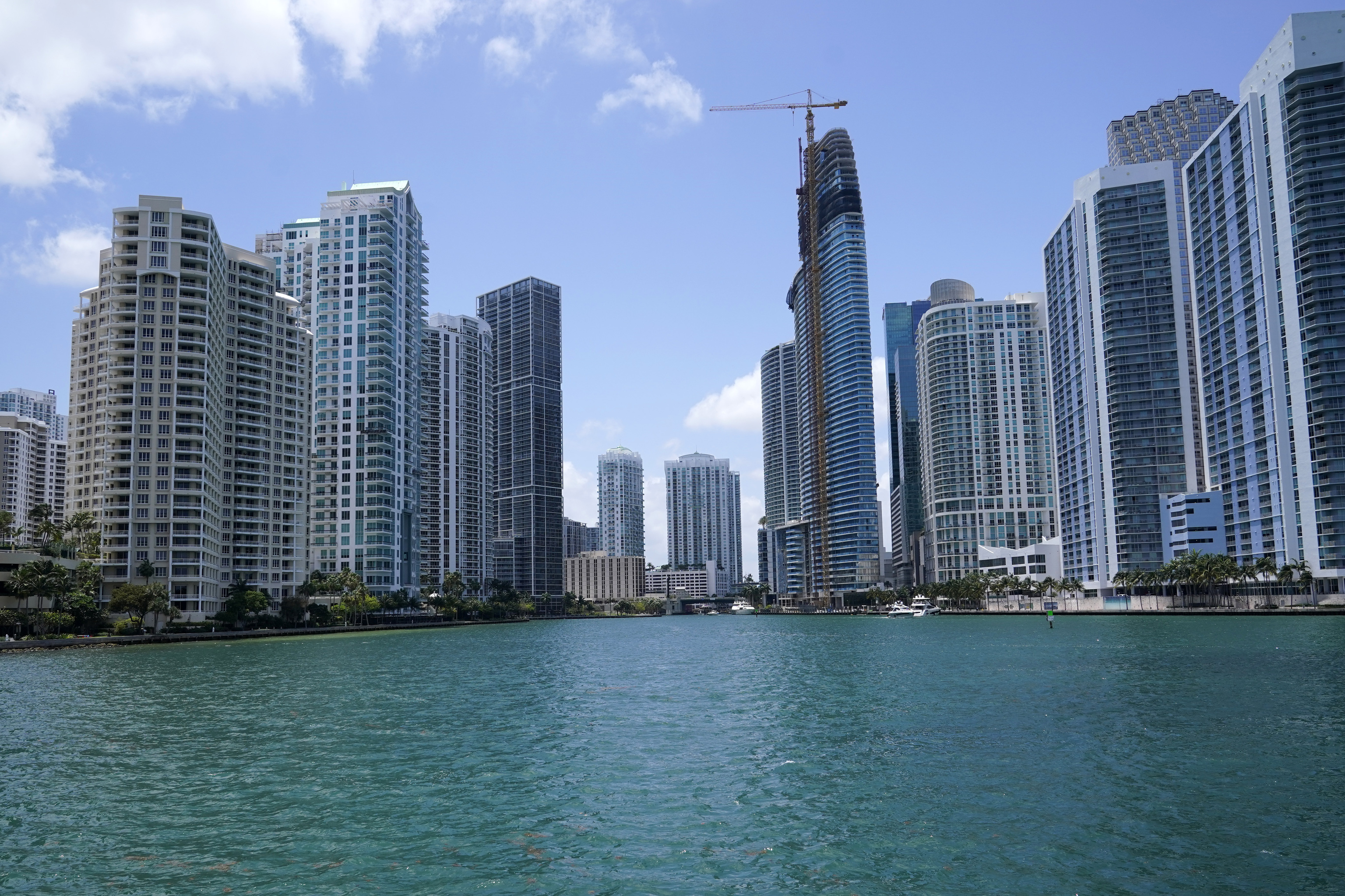The eight-episode romp on MGM+ centers on a real-life hotel at the beginning of the war on drugs that had a private nightclub known as a notorious hangout for show business types, CIA undercover agents and drug kingpins.
Creator and showrunner Chris Brancato, the creator of "Narcos" and "Godfather of Harlem," explains the show using another hot hangout with war looming: "I describe it as 'Casablanca' on cocaine."
"Hotel Cocaine," set in 1978, centers on the hotel's general manager, Roman Compte (played by Danny Pino), a Cuban expatriate who caters to high-end hotel patrons. He slowly gets sucked into a life of crime trying to protect his daughter from unsavory federal agents on one side, and his equally unsavory estranged brother, a mobster, on the other.
"This show has become about many things. It's about immigration to this country and trying to achieve the American dream. It's also about a man caught in a perilous moral quandary of trying to save his daughter at the risk of betraying his brother from whom he's estranged."
Leavening the darkness is plenty of humor, mocking the era's emphasis on personal growth through psychedelics and its partying excess. The scripts also have fun portraying real celebrities, like John Lennon, Liza Minnelli, John Bonham, Hunter Thompson and Rick James.
Brancato says he created a careful balance between a "meat and potatoes drug show" and comedy. "I wanted there to be a sense of humor to what is otherwise could be a kind of dark and very dreary subject matter," he says.
The show also co-stars Yul Vazquez, Michael Chiklis and Mark Feuerstein. It was shot in the Dominican Republic, which "looks more like Miami of the '70s than Miami now," says Brancato.
The series is enlivened by music from the era, including Latin sounds and pop classics, like Eric Clapton's "Cocaine." Brancato managed to get the rights to use Dire Straits "Sultans of Swing" at a discount because singer-guitarist Mark Knopfler was a fan of "Narcos."
"The hedonism and the party and the disco and the choreography and the dancing may seems frivolous, but there's a life and death struggle happening underneath," Pino says.
The action takes place inside and outside the Mutiny nightclub, which was the jewel of the 138-room Mutiny Hotel. The hotel still exists, the nightclub — which also inspired the movie "Scarface" — doesn't.
"You not only had the cocaine trade flowing through the Mutiny. But you had lawyers, money launderers and intelligence officers. All those roads converged in that little place," says Vazquez, whose sister partied at the nightclub in her youth.
The show's hero also was a real man: Roman Compte. His son, "Narcos" actor Maurice Compte, brought his father's experiences to Brancato, who started fictionalizing. (Pino worked with the younger Compte on "Mayans MC" and asked him plenty of questions about his dad.)
"For me, it's not interesting to do these crime shows unless you can find some interesting new angles. So, for example, 'Godfather of Harlem' is the collision of organized crime and civil rights, two things that actually don't really belong in the same sense."
"Hotel Cocaine" reaches for authenticity by casting two Cuban Americans from Miami as the lead brothers and dealing with the legacies of Fidel Castro and the Bay of Pigs.
"It's just filled with all kinds of buttons," says Vazquez, whose brother was a political prisoner in Cuba. "I want to say it's filled with memories, but it's more than memories. It's proper buttons. I jumped at wanting to do this."
The show has as its tagline "every pleasure has a price" and Brancato says he hopes it might make viewers realize how much brutality goes into their recreational drugs
"We do these drugs, and we snort the cocaine, and we give no thought whatsoever to the fact that every line of cocaine has three dead bodies behind trailing back to South America," he says.
Season one is wrapped and the cast hopes there's interest in another. After all, the '80s — where hedonism went nuts — beckons.
"It sets up I think a lot of what we hope this show is going to be in terms of understanding maybe what we're going through today as Americans — through the microscope of being able to analyze what happened in the '70s and '80s," says Pino.
